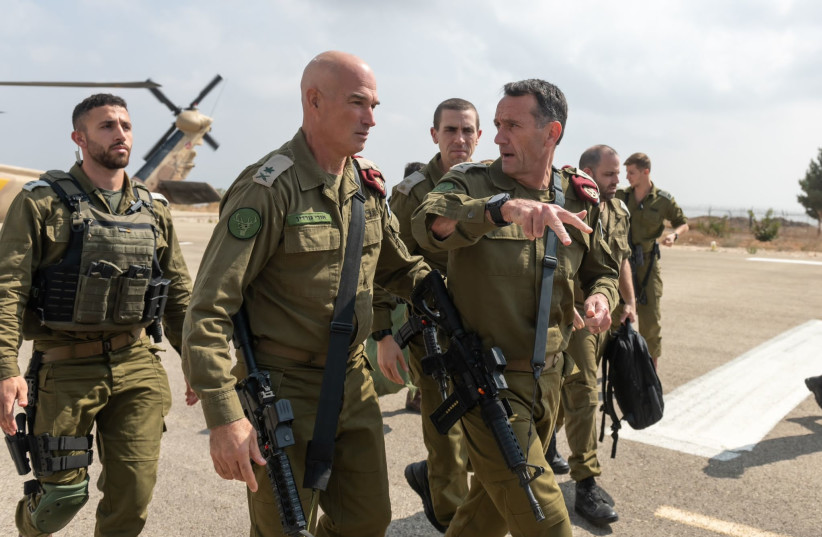Israel could consider a small tactical pause to the Gaza war for an hour or so, Prime Minister Benjamin Netanyahu told David Muir of ABC’s World News Tonight program as he responded to the international pressure for a ceasefire.
“As far as tactical little pauses, an hour here, an hour there, we have had them before,” Netanyahu said.
“We will check the circumstances in order to enable humanitarian goods to come in or individual hostages to leave,” he stated on Tuesday.
Earlier in the day he spoke with US President Joe Biden about the possibility of such a pause to the war which was sparked on October 7, when Hamas killed over 1,400 people in southern Israel and kidnapped over 240 others.
According to the White House, “the two leaders discussed the possibility of tactical pauses to provide civilians with opportunities to safely depart from areas of ongoing fighting.”

Such pauses, the White House said, would “ensure assistance is reaching civilians in need, and... enable potential hostage releases.”
Netanyahu: Ceasefire akin to surrender
Israel has insisted that any ceasefire must include the release of all the hostages, and that even then it could happen only with the understanding that the IDF still intends to pursue its military campaign to oust Hamas from Gaza.
The United States has backed Israel on that point, but the two sides have differed on a mechanism for humanitarian pauses, with Israel fearing that such a break in the fighting could become a de facto ceasefire.
“A ceasefire would be a surrender to Hamas. It would be a victory for Hamas and you would no more have it than you would have a ceasefire after the al-Qaeda bombings of the World Trade Center” in New York in 2001, Netanyahu told ABC.
“There will be no general ceasefire in Gaza without the release of our hostages,” he stressed.
A ceasefire would hamper the “war efforts” as well as efforts to secure the release of the hostages, he said.
“The only thing that works on these criminals in Hamas is the military pressure we are exerting,” Netanyahu said.
“Until we started the ground operation there was no pressure on them to release hostages. What we see is that the minute we started the ground action there was pressure," he added.
Netanyahu also appeared to indicate that Israel might have some intelligence on the location of the hostages.
He also addressed the civilian cost of the campaign to Palestinians in Gaza, in light of the UN's reporting that some 1.5 million of the 2.7 million people living in the coastal enclave have been displaced due to the war. Hamas has asserted that over 10,000 people have been killed.
Netanyahu said the number included at least several thousand Palestinian combatants.
“Every civilian lost is a tragedy. We are fighting an enemy that is particularly brutal. They are using their civilians as human shields,” he said, referencing the fact that Hamas places its infrastructure in civilian areas.
“It’s important to understand that there is no way to defeat terrorists” embedded in civilian areas without incurring civilian casualties, he stated.
Muir also asked Netanyahu if he took responsibility for the Israeli security failure that led to the October 7 attack.
“The responsibility of the government is to protect the people and that clearly was not met," Netanyahu said, but he added that the issue was best addressed after the war.
Netanyahu agreed with Muir that he needed to take responsibility but not while conducting a military campaign.
When the war is over, he said, “tough questions are going to be asked and I am going to be the among first to answer them.”
